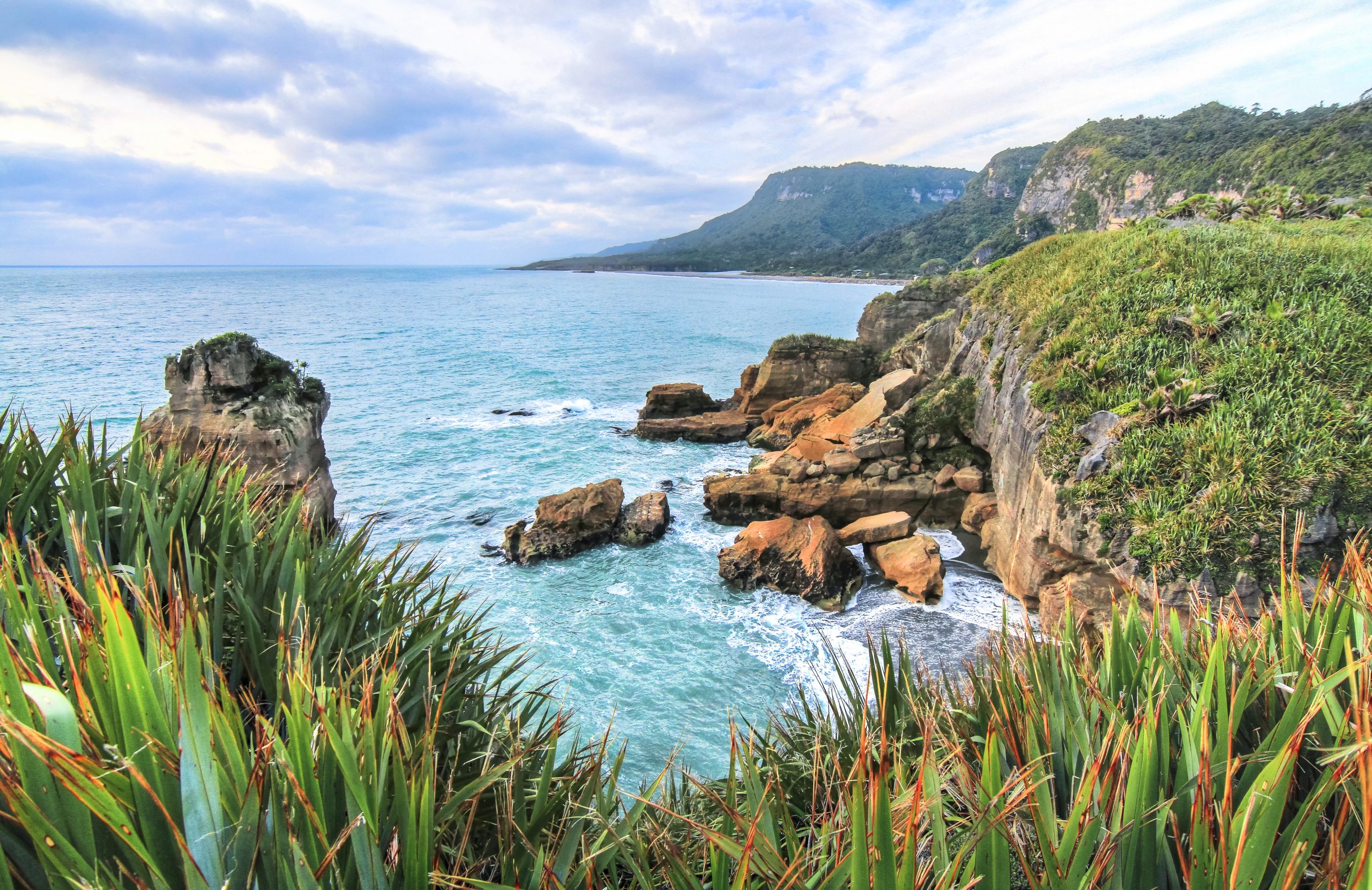COVID-19 devastated international tourism in 2020, and the pandemic’s impacts are still being acutely felt in 2022. International tourist arrivals dropped by 73 percent in 2020, and tourism’s direct impact on world gross domestic product was reduced by US$2 trillion[1]. These global figures mask the wide range of policies and related outcomes that have played out at national scales, with some borders quickly reopening to international tourists, while others remain closed. The pandemic has brought into stark perspective tourism’s significance as a direct and indirect contributor to household livelihoods and community well-being around the world.
Regardless of the duration of border closures, or the national and regional impacts of the pandemic, we have witnessed a worldwide upswell of interest in assessing how tourism can contribute more positively to the ecosystems and communities it operates within. We must move beyond a fixation on visitor numbers and economic statistics and look deeper into the impacts of tourism’s ‘rebuild’ on the achievement of UN Sustainable Development Goals. The pandemic has provided a catalyst for nations to ‘re-imagine’ tourism to be more sustainable, with a focus on contributing positively to resident well-being and local ecosystems[2]. The unprecedented nature of the pandemic-induced closure of international borders provided a vivid reminder of not just the excesses associated with overtourism but also the ‘breathing space’ for a true tourism reset to occur.
As we begin to adjust and adapt to living with COVID-19, we certainly have an opportunity to ‘build back better’ and to prioritise a blue recovery that is coupled with sustainable forms of coastal and marine tourism[3]. Visitor demand for nature-based holidays in marine and coastal settings was growing rapidly prior to COVID-19 and was projected to continue that trajectory[4]. While this growth has been disrupted by the pandemic, there is no doubt that these destinations and activities have retained their distinct appeal to visitors. Indeed, this appeal has only increased as long pandemic-induced lockdowns have reinforced the value of more meaningful experiences with nature. At the same time, health concerns about crowded activities in indoor spaces mean will make well-managed outdoor activities and experiences more popular than ever[5].
A blue recovery prioritises nature and supports conservation. Communities also have the chance to move beyond being seen simply as stakeholders in tourism activity to being key shareholders in the benefits that are generated[6]. Developing marine and coastal tourism that links to the blue economy directly supports government priorities for a tourism industry ‘reset’ that restores and strengthens natural capital and supports thriving, sustainable destinations. Well-managed marine and coastal tourism creates a vital economic incentive to improve ocean management and can support a blue economy that delivers local benefits. The case of shark ecotourism in Mexico, for example, shows the potential for this activity to create significant employment and revenue, but also reinforces the vital role that education, conservation and the flow of benefits to local communities must play if truly sustainable development outcomes are to be achieved[7].
The pandemic-driven hiatus in international visitor flows also provided businesses in the marine tourism sector with the chance to re-evaluate their practices. For fortunate operators with the resources, there has been an opportunity to invest in reducing their carbon footprint, strengthening links to surrounding economies and enhancing support for both the marine environment and nearby communities. In some instances, extractive marine tourism activities may even shift towards more sustainable visitor experiences, including marine mammal viewing[8]. In Auckland, New Zealand, for example, several traditional charter fishing operators are looking to ‘reset’ their traditional offerings by providing marine ecotourism and culturally focused experiences.
While the slowdown in tourism afforded opportunities to reset marine tourism policy and business practices, a range of challenges need to be overcome if we want to avoid repeating past mistakes. The most frequently addressed challenge to marine ecosystem management involving tourism is conflict between the diverse interest groups involved[9]. These groups include visitors, host communities, the tourism industry and of course the flora and fauna that comprise marine attractions. The consequences of limited or poorly managed engagement among stakeholders in ecosystem management can include social exploitation, disempowerment and environmental degradation[10]. In such cases, the interests of more powerful actors impinge on the rights and/or well-being of other elements in the ecosystem; it is critical that any reset of tourism look to adopt frameworks that can reduce such imbalances. By rebalancing tourism with a focus on community well-being and sustainable management of natural resources, it is possible to mitigate and perhaps overcome the tensions that often stem from conflicting use of coastal and marine resources.
A further challenge lies in the very fact that tourism has faced an existential crisis. The economic impact on businesses and destinations remains a paramount concern for most owners and investors, which tends to reduce their focus on the broader environmental context. Operators who are struggling for survival are likely to have limited appetite for new and potentially costly approaches to enhancing the sustainability of their business models. The case made for environmentally and culturally sustainable marine tourism must be compelling; it is vital that policymakers continue to reinforce the overriding threat posed by global climate change and the true costs of local environmental and cultural degradation. It may even be necessary, in some instances, for government to provide support for business operations to embrace the core tenets of a blue recovery.
To truly transform marine tourism and move to a blue economy we need inclusive models and policy frameworks that create and sustain productive links between the sector and other users of the ocean[11]. To this end, several national and global initiatives are providing research, monitoring and mapping to underpin the shift to a blue economy and highlight tourism’s role within it. For example, PROBLUE Healthy Oceans, Healthy Economies, Healthy Communities is a World Bank–led, multi-donor initiative aimed at developing healthy marine and coastal resources in a blue economy. Research related to marine tourism is focused on assessing the impact of marine protected areas on regional economies. Seas Oceans and Public Health in Europe (SOPHIE), a pan-European research program looking at the links between marine environments and human well-being, features the ‘Blue Effect’ citizen science project, which aims to understand how participation in marine ecotourism activities impacts participants’ well-being.
Marine tourism must position its interests in relation to the objectives and goals of governments, other industries (such as commercial fishing and aquaculture) and, most important, the communities that have traditionally used the marine resources. It is particularly vital to engage with, and learn from, Indigenous communities for whom marine resources are deeply tied to cultural and spiritual dimensions—not simply to the economic sphere[12]. A blue recovery offers important opportunities for Indigenous communities to develop visitor experiences that embrace the sustainable use of natural resources, while also providing a chance to share traditional ecological knowledge and create a deeper understanding of culture and place. For example, the company Dreamtime Dive and Snorkel runs Indigenous-guided day-long sea tours to the Sea Country (the Great Barrier Reef), providing a cultural reef experience. The business is owned and operated by Experience Co. Ltd. in cooperation with the Gimuy Walubara Yidinji, Gunggandji, Mandingalbay and Yirrganydji people, the traditional owners of Sea Country. Indigenous guides communicate in an accessible way the scientific research that is being undertaken by marine biologists, while at the same time sharing their own deep understanding of the reef and highlighting the ecosystem’s value to their people.
As marine tourism management engages with the objectives of sustainability and resilience, and draws on ecosystem-based insights, additional challenges will emerge. The desire for economic growth and development must be viewed alongside ecological and societal well-being. These tensions point to the need to develop planning and engagement frameworks that facilitate the social negotiation of ecosystem management. There is a pressing need also to strengthen our understanding of how we integrate wildlife and other non-human stakeholders into management decisions[13]. It is imperative that understandings of marine tourism be informed by research that treats humans as co-participants in ecosystems having equal (as opposed to privileged) standing with non-human participants. A failure to acknowledge non-humans, or a heavy focus on single species impacts, will simply obscure the complex ecological interactions that comprise healthy and resilient ecosystems[14].
It is essential that a holistic disciplinary view be taken to understanding the dynamics and challenges facing marine tourism[15]. We need to measure and understand impacts in new ways—to develop indicators that can really tell us how well we are achieving the goals set in our efforts to ‘re-set’ tourism and ‘build back better’. These insights must then be incorporated into planning frameworks for both the tourism sector and the marine environments in which it operates, otherwise we run the real risk of simply ‘pouring old wine into new bottles’.
—–
[1] UN World Tourism Organization, “The Economic Contribution of Tourism and the Impact of COVID-19,” November 2021, https://www.e-unwto.org/doi/epdf/10.18111/9789284423200.
[2] Organisation for Economic Co-operation and Development, “Managing Tourism Development for Sustainable and Inclusive Recovery,” OECD Tourism Papers, January 2021, http://dx.doi.org/10.1787/b062f603-en.
[3] K. Kemper, “Why We Need a Blue Recovery,” World Bank Blogs, 1 July 2020, https://blogs.worldbank.org/voices/why-we-need-blue-recovery.
[4] United Nations, “COVID-19 and Transforming Tourism,” policy brief, August 2020, https://www.un.org/sites/un.un.org/files/sg_policy_brief_covid-19_tourism_august_2020.pdf.
[5] S. Milne, E. Thorburn, C. Rosin and C. Deuchar, “Developing Marine Ecotourism for a Sustainable Blue Economy: A Literature Review,” National Science Challenges: Sustainable Seas, March 2021, https://www.sustainableseaschallenge.co.nz/tools-and-resources/developing-marine-ecotourism-for-a-sustainable-blue-economy-a-literature-review/.
[6] Kemper, “Why We Need a Blue Recovery.”
[7] A.M. Cisneros-Montemayor, E.E. Becerril-García, O. Berdeja-Zavala and A. Ayala-Bocos, “Shark Ecotourism in Mexico: Scientific Research, Conservation, and Contribution to a Blue Economy,” Advances in Marine Biology 85, no. 1 (2020): 71–92.
[8] S. Milne, E. Thorburn, K. Wikitera, C. Deuchar and S. Histen, “Marine and Coastal Ecotourism—National and Regional Picture (Part 2): Operator Survey and Interviews,” National Science Challenges: Sustainable Seas, December 2021, https://www.sustainableseaschallenge.co.nz/tools-and-resources/marine-ecotourism-baseline-report-2/.
[9] O. Saidmamatov, U. Matyakubov, I. Rudenko, V. Filimonau, J. Day and T. Luthe, “Employing Ecotourism Opportunities for Sustainability in the Aral Sea Region: Prospects and Challenges,” Sustainability 12, no. 21 (2020): 9249.
[10] K. Jones and T. Seara, “Integrating Stakeholders’ Perceptions into Decision-Making for Ecosystem-Based Fisheries Management,” Coastal Management 48, no. 4 (2020): 275–88; K. Dimmock, E.R. Hawkins and M. Tiyce, “Stakeholders, Industry Knowledge and Adaptive Management in the Australian Whale-Watching Industry,” Journal of Sustainable Tourism 22, no. 7 (2014): 1108–21.
[11] United Nations, “COVID-19 and Transforming Tourism”; UN Environment Programme (UNEP), Rising Tide: Mapping Ocean Finance for a New Decade, February 2021.
[12] M. Amoamo, K. Ruckstuhl and D. Ruwhiu, “Balancing Indigenous Values through Diverse Economies: A Case Study of Māori Ecotourism,” Tourism Planning and Development 15, no. 5 (2018): 478–95; C. Seek and N. Sellier, Stimulating Sustainable Development through Tourism Concessions: Case Studies on How Tourism Can Benefit the Environment and Communities Living in and around Protected Areas (Washington, DC: World Bank Group, 2019).
[13] A. Chakraborty, “Emplacing Non-human Voices in Tourism Research: The Role of Dissensus as a Qualitative Method,” Tourism Geographies 23, no. 1–2 (2021): 118–43.
[14] Milne et al., “Developing Marine Ecotourism.”
[15] UNEP, Rising Tide.


 Previous
Previous


